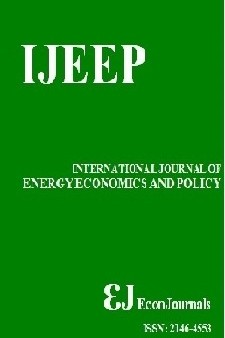Energy Safety and Innovative Development of the BRICS States
Energy Safety and Innovative Development of the BRICS States
BRICS, NAFTA, the EU, power industry international ratings, R&D, innovative economy,
- Başlangıç: 2011
- Yayıncı: İlhan ÖZTÜRK
The influence of Economic Growth and Electric Consumption on Pollution in South America Countries
Joel Alejandro Rosado, María Isabel Alvarado Sánchez
Impact of Vertical Integration on Electricity Prices in Turkey
Hlalefang Bernedict Khobai, Pierre Le Roux
Ivan A. Kapitonov, Vladimir I. Voloshin, Irina V. Zhukovskaya, Aleksei A. Shulus
Energy Security, Trade and Transition to Green Economy in Africa
Opeyemi E. Akinyemi, Evans S. Osabuohien, Philip O. Alege, Adeyemi A. Ogundipe
Problems and Prospects of Innovative Development of Petrochemical Enterprises
Olga Viktorovna LENKOVA, Anton Stanislavovich PERMYAKOV, Olga Gennadyevna YAKUNİNA, Marina Vyacheslavovna VECHKASOVA
Testing the Shock Effect of Some Policy Variables on Electricity Generation in Nigeria
Samuel Nnamdi Marcus, Amachukwu Chibuzo Okezie
José Maria Gonçalves Nunes de Melo, Samuel Façanha Câmara, Fabíola Gomes Farias, Fábio Nóbrega de Lima, Ana Augusta Ferreira de Freitas
